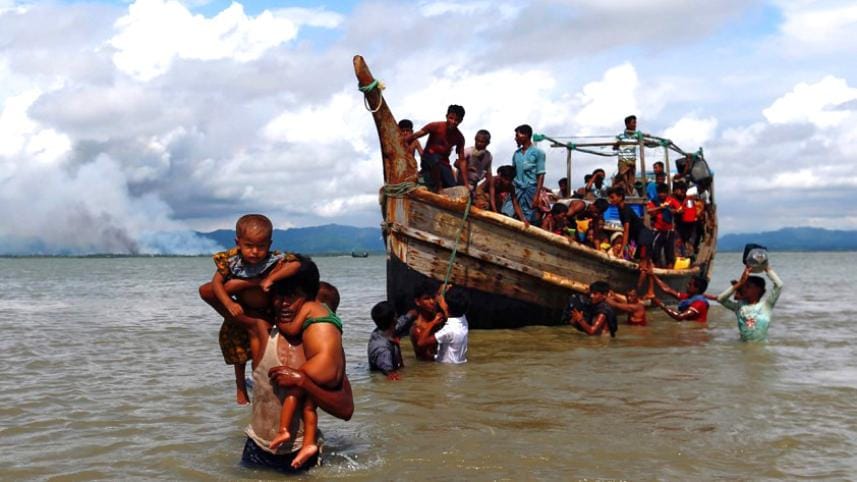Rohingya departures by boat from Bangladesh triple in first half of 2025

The number of Rohingya who left Bangladesh by boat in the first six months of the year tripled compared to last year as living conditions for children in Bangladesh's Cox's Bazar camps continue to deteriorate and funding cuts reduce essential services.
According to Save the Children, at least 1,088 Rohingya refugees — including around 87 children — embarked on sea journeys from Bangladesh in the first six months of this year, heading toward Southeast Asian countries such as Thailand, Malaysia, and Indonesia.
The number was 364 during the same period last year, according to figures from the UN Refugee Agency.
"As the rainy season ends and the situation in the camps continues deteriorate, with increasing crime and reducing services, more families are contemplating whether to leave and brave dangerous boat journeys in search of a better life," Save the Children said in a statement yesterday.
Rahim, 20, who lives in one of the camps in Cox's Bazar, said he is contemplated fleeing the camps. "Life in the camp is getting harder every day. There's no proper work, no chance to study," he said.
"Also, I believe that if I could cross the sea and go abroad, I could support my family financially. Many of my friends talk about going to Malaysia, they think it's the only way to build a future and support their families.
"I also thought about it once, but after hearing how some people were caught, beaten, or never came back, I'm scared. Still, when you see no hope here, it's difficult not to dream of leaving."
Reduced funding, which has led to cuts in essential services like education and healthcare, and international aid cuts have meant that this has been a particularly difficult year for children living in the world's largest refugee camp, said Save the Children.
Traditionally, Rohingya refugees looking to leave Bangladesh have taken to sea in October, at the end of the region's rainy season, on journeys that are often fraught with danger, including for children who risk abuse at sea and sometimes travel unaccompanied without their parents or guardians.
Abeda Sultana, senior project officer for child poverty at Save the Children, said as an aid worker, she sees that limited livelihood options and growing insecurity in the camps are major reasons why many Rohingya youth take the risk of migrating irregularly.
"Economic pressure and the need to support their families also push youth to take such high risks. Hearing success stories from peers who migrated successfully continues to encourage others to follow the same unsafe routes."
Save the Children has called on donors to urgently increase funding for education, livelihoods, and improved security in the camps to address the desperation driving dangerous sea journeys.
It urged regional governments to allow boats to safely disembark and to provide assistance and protection to refugees. Regional cooperation and responsibility-sharing are essential to prevent further loss of life and protect vulnerable children and families.



 For all latest news, follow The Daily Star's Google News channel.
For all latest news, follow The Daily Star's Google News channel.
Comments